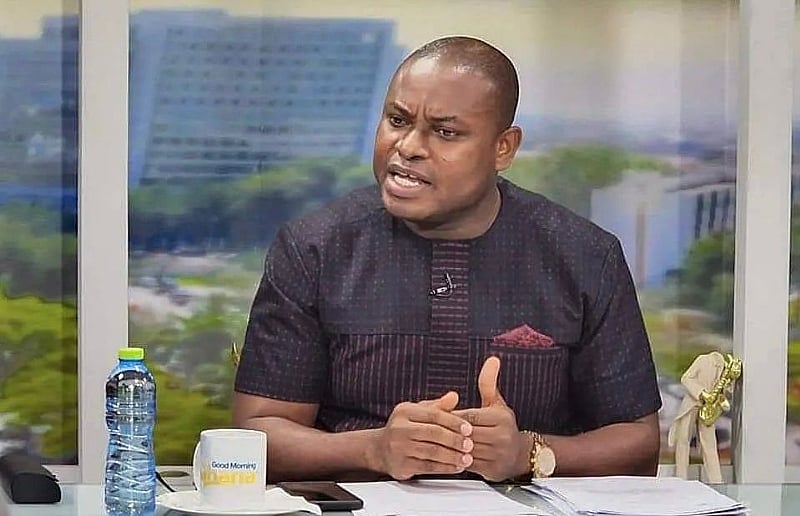The political landscape in Ghana is currently embroiled in a controversy surrounding petitions seeking the removal of Chief Justice Gertrude Esaaba Torkornoo. Richard Ahiagbah, the National Communications Director of the ruling New Patriotic Party (NPP), has publicly asserted that these petitions are part of a larger, orchestrated plan by former President John Dramani Mahama to eventually oust the Chairperson of the Electoral Commission, Jean Mensa, and her deputy, Bossman Asare. Ahiagbah claims that Mahama’s ultimate goal is to install a Chief Justice more amenable to his agenda, thereby facilitating the removal of the EC officials. This alleged scheme, according to Ahiagbah, is driven by Mahama’s dissatisfaction with the current leadership of the Electoral Commission.
Ahiagbah’s accusations hinge on the timeline of the petitions. He contends that petitions calling for the removal of Jean Mensa and Bossman Asare were submitted to President Mahama months before the petitions against the Chief Justice. These earlier petitions, Ahiagbah argues, remain unaddressed because they require the Chief Justice’s involvement to initiate the legal process for removal. By alleging that Mahama is intentionally stalling the process, Ahiagbah suggests the President is maneuvering to replace the Chief Justice with someone who will be more likely to act favorably on the petitions against the EC officials. This, according to Ahiagbah, points to a calculated political strategy by Mahama to influence the electoral process.
The constitutional process for removing high-ranking officials like the Chief Justice and the EC Chairperson involves several crucial steps. Petitions for removal must be submitted to the President, who then forwards them to the Chief Justice. The Chief Justice is responsible for determining whether a prima facie case exists. If a prima facie case is established, the Chief Justice then sets up a committee to investigate the allegations. Ahiagbah’s claim is that Mahama is deliberately delaying the process regarding the EC officials by not forwarding the petitions against them to the Chief Justice. This delay, according to Ahiagbah, allows time for the campaign against the Chief Justice to gain traction, potentially paving the way for a more compliant replacement.
The core of Ahiagbah’s argument revolves around the alleged motive behind Mahama’s actions. He posits that Mahama’s primary objective is not the removal of the Chief Justice per se, but rather the eventual dismissal of the EC Chairperson and her deputy. The Chief Justice, according to Ghana’s constitution, plays a pivotal role in the removal process of EC officials. Therefore, Ahiagbah infers that Mahama seeks to influence the outcome of this process by allegedly engineering the removal of the current Chief Justice and replacing her with someone more likely to support the petitions against Jean Mensa and Bossman Asare. This alleged manipulation, Ahiagbah suggests, undermines the integrity of the electoral process and represents an attempt by Mahama to gain an unfair advantage.
The allegations made by Ahiagbah have brought into sharp focus the delicate balance of power between different branches of government in Ghana and the potential for political maneuvering within the legal framework for removing high-ranking officials. The fact that the content of the petitions against both the Chief Justice and the EC officials remains undisclosed adds another layer of complexity to the situation. This lack of transparency fuels speculation and allows for a wider range of interpretations regarding the motivations behind the petitions. Whether the petitions are based on legitimate concerns or driven by political agendas remains a central question in the ongoing debate.
The accusations levelled by Ahiagbah against Mahama represent a significant development in the political discourse in Ghana. The implications of these allegations, if proven true, could have far-reaching consequences for the integrity of the electoral process and the public’s trust in the judiciary. The situation underscores the importance of transparency and due process in handling such sensitive matters. As the situation unfolds, it will be crucial to carefully examine the evidence and motivations of all parties involved to ensure that the principles of justice and fairness are upheld. The future of the Chief Justice and the EC Chairperson hangs in the balance, and the resolution of this controversy will undoubtedly shape the political landscape in Ghana in the coming months.














